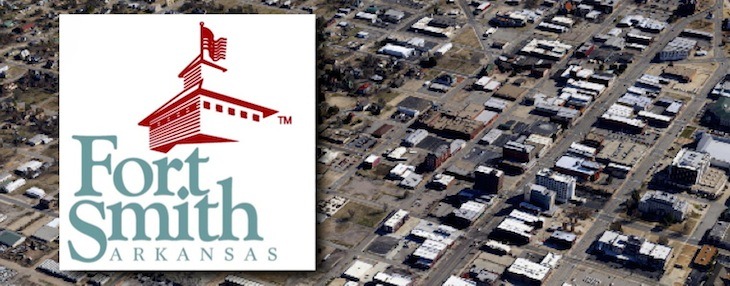Pet licensing issue again before the Fort Smith Board
by March 26, 2019 6:25 pm 773 views

The Fort Smith Animal Services Advisory Board (ASAB) presented a pet licensure program to the Fort Smith Board of Directors at the board’s study session Tuesday (March 26).
The proposed program would call for differential licensing. A pet license “B” would be required for all altered dogs in the city. It would be free, but would also call on the dogs to be microchipped and the microchip information to be up-to-date. Pet license A would be for an intact animal and serve as a business license to breed. It would cost $125 a year, said Dr. Nicole Morton, a Fort Smith veterinarian who serves on the ASAB.
“We recommend 20% (of the fee) goes toward an Animal Population Trust Fund. The (fund) would be used to offer spay/neuter vouchers to low income families in the city to be used for low cost spay/neuter services at any veterinarian office participating,” the proposal states.
The cost of the “A” license was determined as a deterrent to not spaying or neutering a pet. The average cost for a dog up to 50 pounds at a low cost spay/neuter clinic is $60. The cost of microchipping a pet was not discussed, though pet licenses would require pets to be microchipped.
The proposal calls for enforcement of the licensure to be done by animal control officers with each pet-related call they make. If they are called to an incident, a dog fight or attack or stray dog, they will issue a citation if the pet does not have a valid license. The owner would then have 45 days to get the license or have the pet altered, Morton said. If they comply within the 45 days, there would be no fine, she added.
Veterinarians and groomers would not enforce licenses, Morton said.
For a license application, pet owners would get a standardized form similar to a rabies certificate from their vet. Owners would obtain their license at city offices. The program would allow for a free license to be granted if a pet owner had a letter from their vet stating that the dog’s health or age made the surgery dangerous. Pet owners who wanted to allow their larger dogs more time to mature prior to being altered also could get a letter from their vet that would allow them extra time to do so, Morton said.
“Pet license registration will include all the information already on a rabies certificate as well as the pet’s microchip number and alteration status. This information will be entered into the city’s computer database by secretary personnel in the city offices,” the report stated.
Though the pet licensure program won’t be a quick fix to the dog overpopulation problem in Fort Smith, it does “have the capacity to bring animals to a clinic to be altered and reduce pet overpopulation,” the report said.
“Differential licensing provides the tools that are needed by which animal control can stop unwanted litters, make our city safer and reduce the taxpayer burden with stray and unwanted animals,” Morton said.
Records of shelter intake stats extend back nearly a decade revealing a pet overpopulation crisis in the city that continues to grow out of control, Morton said, noting that each year the city of Fort Smith spends over $500,000 to collect, house and handle surplus pets.
Morton said the program would not cost the city anything, but Ward 1 Director Keith Lau asked whether there would be costs for computer programs, personnel or equipment. City Administrator Carl Geffken said he could work on gathering that information and that directors, if they voted to have an ordinance requiring the pet licensure program, could set an implement a timeline for the program.
Morton did say all animal control officers would need a scanner that can read microchips.
Directors agreed to place the item on the agenda for consideration at the next regular board meeting, which will be 6 p.m. April 2 at the Fort Smith Public Schools Service Center, Building B, 3201 Jenny Lind Road.
